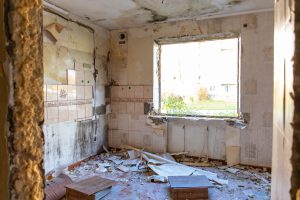- First of all, strategy: determine the investment goals (increasing equity, building flow income, diversification and widespread investment,) as a way of life – not as a one-time adventure.
- The language barrier: You should invest in a country that does not speak and read its language reasonably well.
If your English is at a reasonable level – in countries that speak this language such as the USA.
If you don’t speak Spanish – invest in Spain. Why?
How will you perform due diligence on the deal if you don’t know the language? You can only rely on translated material presented to you by the broker, developer or seller. You will not be able to check raw material, for example similar property prices.
- Acquaintance with the local tax system: a local body, an expert, with many years of experience, well versed in the taxation system, not only at the state level but in every region and sub-region. For example: high taxation on schools in specific areas of the city – which you could not know to check in advance, can make an investment worthwhile in terms of your cash flow.
- Acquaintance with the local system and laws: the same for the local law: the consequences are in the line of profit, starting with how long and what the process is for evicting a non-paying tenant, to the laws regarding the height of grass allowed in the yard (literally). Invest only with an expert, professional body with years of experience, who knows the area and controls all your transaction and investment data.
- Intermediary: Intermediaries are broadly divided into two. Most of the brokers deal with homeowners, that is, those who sell or buy a property for residence and not for investment. Intermediaries of this type are not suitable for you the investor, will not benefit you and will even cause damages. You need to look for the second type of broker – a broker who specializes in working with investors and in the specific market in which you have chosen to invest.
- The management company: The management company and you have a distinct conflict of interests. The management company does not make a profit from a monthly collection of NIS for you, but from maintenance work it performs on the property and charges a hidden or overt fee for it and changes tenants, for which it charges a tenant finding fee of half a month or a full month of NIS.
Therefore, the management company wants maximum tenant turnover at least every year and a lot of maintenance work, while you, the investor, want the opposite – long-term tenants and maintenance costs as low as possible.
- Avoid short-term investments :
In the transaction of improving a property and selling it in a short period of several months, you can earn tens of percent on the investment. The temptation to make a quick profit carries high risks, including losing part or all of the fund. Especially as an investor in property overseas, I strongly recommend you not to go in the direction of short-term investments.
- Choosing an investment area: The investment area you choose must include the following parameters:
– A medium or large city in the USA (at least 100,000 inhabitants) or one of its suburbs that are not more than an hour and a half away from a significant city
– The percentage of houses that are empty is low (you can get this data online as well as from the local broker)
– The property rental time – low – up to 30 days for rent.
– There are high rental yields in the market. What is high yield? In today’s market, a return of 7 to 8 percent is considered high.
Pay attention – be very careful of areas of the city where the returns are in double digits. In most cases, the reason for this is that these are the worst areas for living in that city, so this investment is risky and the high returns will remain only on paper
– In the market, there are stocks of houses for sale at prices lower than $100,000 in reasonable areas in terms of the level of schools and the level of crime. - Property ownership registration:
When you purchase a property not directly from the seller, but through a marketing company or an entrepreneurial company, think to understand to the end that the property is registered in your name or in the name of a company that owns the property directly and in which you have ownership.
Unfortunately, we have often encountered investors who thought they had purchased a property but the transfer of ownership was not carried out as required and the property is not registered in their name or in the name of a company they own. That’s why section #1 is so important – knowing the language - Know what the market price of the property is before the purchase: without this figure it is forbidden to purchase any property either abroad or in Israel.
In order to know what the value of the property is, you must have a list of at least 3 similar properties that were sold in the same neighborhood in the last six months, where the price must weigh the larger of the property. If it is a residential building then its price is also determined according to the average yields in the market where you are purchasing.
You must use an expert in the field and fully understand the data he gives you and even cross-check with another source independent of the transaction.
A well-known saying in real estate is that the money in real estate is made by buying and not selling – this is a very true saying. In other words, purchasing at the right price is the key to success in any real estate transaction – this is probably the most important section in real estate investments.
Another important point – if you buy real estate with an emphasis on the USA, then a cash purchase, that is, without leverage, usually enables a purchase at a significant discount. This is an excellent technique to reduce the purchase cost and create a profit on paper from the purchase already at the time of purchase. This is a technique that we make sure to use a lot when after the cash purchase you can get a mortgage loan from the bank and this money goes directly into your bank account (CASH OUT) - Insurance of the property:
Immediately upon purchasing the property, you must insure it with full insurance that will cover light and heavy damages such as fire or weather damage. More than once I made a lot of money from an insurance case and once when an old property that I owned burned down almost completely I won full financing from the insurance company and the construction of a new house whose value was much higher than the house that burned. - And finally: purchase through a company marketed in Israel:
It is very important to find out whether the company that offers you to purchase the property is a marketing company or the entrepreneurial company itself. In most cases, companies in Israel that offer properties abroad are marketing companies only, the relationship between them and the property is low, the commissions are high, and the familiarity of the salespeople with the area and the property is low to almost non-existent.
It is recommended to go directly to the source and purchase with the developer directly or from a local real estate broker.
Real estate is done exclusively in the field.








